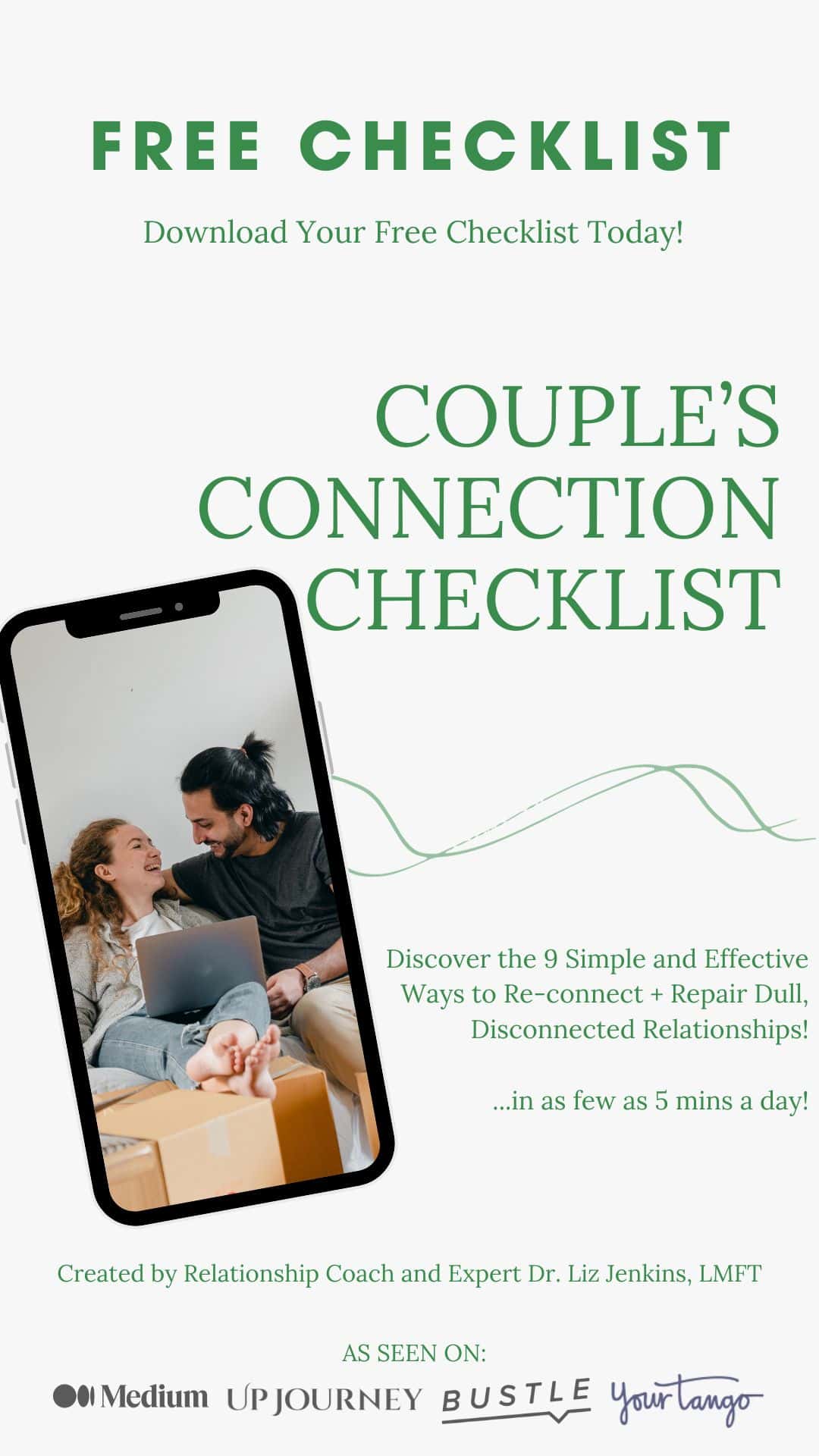Are you haunted by the ‘what-ifs’ and the ‘should-haves’ in your relationship or marriage? The good news is that regrets are not dead ends; they’re just bumps on the road to growth and happiness.
In the journey of love, partnerships, and commitment, regret can occasionally cast its shadow over even the most seemingly perfect relationships. Regret in a relationship or marriage often appears in complex or confusing feelings such as guilt, shame, emptiness, or questioning the connection. Missed opportunities, unfulfilled expectations, poor decisions, and even the passage of time are just a few examples. While it’s natural to experience regrets, how we choose to address and learn from them defines the health and longevity of our relationships.
Understanding Regret in Relationships
 Regret, in its essence, is a feeling of disappointment or sadness caused by a perceived mistake or missed opportunity. In relationships and marriages, it can manifest in different ways.
Regret, in its essence, is a feeling of disappointment or sadness caused by a perceived mistake or missed opportunity. In relationships and marriages, it can manifest in different ways.
Past Choices:
Decisions made in the heat of the moment or without a clear understanding of their consequences can lead to regret. It might look like not prioritizing quality time, neglecting communication, or making rash judgments.
Common complaints such as “I’m just not important anymore.”, ‘You care more about your friends, work, videos, etc. than me.” are early warnings sign of future regret.
Unmet Expectations:
Unrealistic expectations can set the stage for disappointment. When what we envision differs significantly from reality, regret can sneak in.
Naturally, we each have ideas and expectations of what we want from our partner or spouse. What we need or hope to have by committing to each other. When our sweetheart does not share or meet our expectations, emotions run high, with disappointments and distancing following close behind.
Communication Breakdown:
Regret can also arise when communication falters. Not expressing feelings, needs, or concerns may lead to misunderstanding and regretting unvoiced sentiments.
When asked if they are a good communicator, most will reply that they communicate and listen well to others. Many couples feel confident in their skill of knowing their partner’s needs, dreams, and desires.
Missed Opportunities:
Over time, reflecting on the chances we didn’t take or the opportunities we ignored can result in longing and regret. We focus on what we missed out on, how life or circumstances prevented us from reaching all we dreamed possible.
Our focus has us missing the valuable signal of our emotions: longing, loneliness, anger, and bitterness. The further we follow this path of discontent or distancing, the more likely we overlook what is needed to bring us back together as a loving couple.
The Role of Regret in Growth
 While regret may seem like a negative emotion, it has the potential to catalyze growth and positive change in relationships.
While regret may seem like a negative emotion, it has the potential to catalyze growth and positive change in relationships.
Reflection and Self-awareness:
Regret prompts introspection, allowing individuals to evaluate their actions, choices, and behaviors. This self-awareness can lay the foundation for personal growth and relationship or marriage repair.
With reflection, each person can identify how their actions, lack of activities, and communication efforts created the divide and space for regret to grow. Addressing how each contributed to the relationship’s current emotional state, poised for the next step of rebuilding.
Course Correction:
Acknowledging regrets can pave the way for making amends. Couples can learn from their mistakes and work together to improve their relationship.
Strengthened Communication:
It does take courage to open up and share, especially after years of feeling left out, overlooked and a non-priority. Discussing regrets fosters honest conversations. It encourages partners to address unresolved issues and develop effective communication strategies.
A crucial part of communication is simply just starting. Ask for a time you both can chat, share a bit about what you want to talk about, and then transfer from your heart. It’s often helpful to write a few notes before you meet to stay on track of sharing and not attacking.
Revised Expectations:
Regret often stems from unmet expectations. By reevaluating and adjusting these expectations, couples can reduce future sources of regret.
Navigating Regret Dealing with regret in relationships requires understanding, empathy, and constructive action.
Dealing with regret in relationships requires understanding, empathy, and constructive action.
Acceptance:
Acknowledge that regrets are a natural part of life. Instead of dwelling on them, focus on learning from the past.
Just move on. Life is too short to waste dwelling on the things that can’t be undone or forgotten.
Open Dialogue:
Communicate openly with your partner about your regrets. Sharing vulnerabilities can strengthen the bond between partners.
A surprise side effect of open communication is building intimacy between a couple. As a couple becomes more emotionally close, physical intimacy also experiences a considerable uptick.
Forgiveness:
Both for oneself and one’s partner, forgiveness is crucial. Holding onto past regrets without forgiveness can hinder growth.
We don’t know what we don’t know, didn’t know. Let it go, release, and focus on the future of a relationship or marriage of caring communication with increased connection.
Learning and Change:
Embrace regrets as lessons. Use them as opportunities to change behaviors and make conscious choices moving forward.
Not Going It Alone:
In cases where regret and related emotions become overwhelming, seek the guidance of a Relationship or Connection Coach who will help you both do an in-depth assessment of exactly where both of you are in your relationship, your strengths, areas of opportunities and map out a plan that includes insights and strategies that are design just for your relationship or marriage needs.
 Regret is a multifaceted emotion that can profoundly impact relationships and marriages.
Regret is a multifaceted emotion that can profoundly impact relationships and marriages.
While it’s impossible to avoid regret entirely, choosing how we respond to it is within our control. By fostering open communication, self-awareness, and a commitment to growth, couples can navigate regrets in a way that strengthens their bond and enhances the overall health of their relationship. The goal of healthy relationships is to understand that regrets happen despite one’s best efforts; the true goal is to acknowledge the regrets and use those as stepping stones toward building a fulfilling partnership.
If you’re stuck, unsure how or where to start, that’s okay. It’s to be expected; after all, there have been years of unspoken, unmet needs and missed opportunities. I’m here. So let’s chat!
💞Here is the link to schedule your complimentary Connection Call: https://calendly.com/drlizjenkinscoaching/couples-connection-call-with-dr-liz.
I am looking forward to chatting soon!




